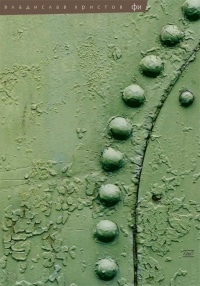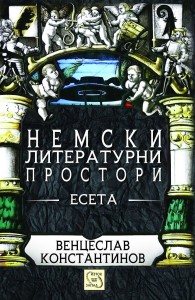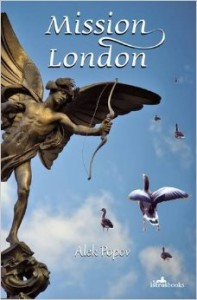I admit it: I have a preference for poems written in a simple, almost sparse language. And that say many things with comparatively few words.
Günter Eich’s Inventur (Inventory) was one of the first examples of this kind of poetry I came across when I was very young.
Inventur
Dies ist meine Mütze,
dies ist mein Mantel,
hier mein Rasierzeug
im Beutel aus Leinen.
Konservenbüchse:
Mein Teller, mein Becher,
ich hab in das Weißblech
den Namen geritzt.
Geritzt hier mit diesem
kostbaren Nagel,
den vor begehrlichen
Augen ich berge.
Im Brotbeutel sind
ein Paar wollene Socken
und einiges, was ich
niemand verrate,
so dient es als Kissen
nachts meinem Kopf.
Die Pappe hier liegt
zwischen mir und der Erde.
Die Bleistiftmine
lieb ich am meisten:
Tags schreibt sie mir Verse,
die nachts ich erdacht.
Dies ist mein Notizbuch,
dies meine Zeltbahn,
dies ist mein Handtuch,
dies ist mein Zwirn.
Inventory
This is my cap,
this is my overcoat,
here is my shave kit
in its linen pouch.
Some field rations:
my dish, my tumbler,
here in the tin-plate
I’ve scratched my name.
Scratched it here with this
precious nail
I keep concealed
from coveting eyes.
In the bread bag I have
a pair of wool socks
and a few things that I
discuss with no one,
and these form a pillow
for my head at night.
Some cardboard lies
between me and the ground.
The pencil’s the thing
I love the most:
By day it writes verses
I make up at night.
This is my notebook,
this my rain gear,
this is my towel,
this is my twine.
(Translated by Joshua Mehigan)
Later I discovered many other interesting and beautiful examples of this genre. There are of course too many to quote them all, so I will just present a very few examples here:
Open House
My secrets cry aloud.
I have no need for tongue.
My heart keeps open house,
My doors are widely swung.
An epic of the eyes
My love, with no disguise.
(Theodore Huebner Roethke – a distant relative)
Another one:
Was ich habe, will ich nicht verlieren, aber
wo ich bin, will ich nicht bleiben, aber
die ich liebe, will ich nicht verlassen, aber
die ich kenne, will ich nicht mehr sehen, aber
wo ich lebe, da will ich nicht sterben, aber
wo ich sterbe, da will ich nicht hin:
Bleiben will ich, wo ich nie gewesen bin.
What I have, I don’t want to lose, but
where I am, I don’t want to stay, but
the one I love, I don’t want to leave, but
the ones I know, I don’t want to see again, but
where I live, I don’t want to die, but
where I’ll die, I don’t want to go:
I want to stay where I have never been.
(Thomas Brasch, translated by Thomas Hübner)
The following poem is already a kind of modern classic:
Was es ist
Es ist Unsinn
sagt die Vernunft
Es ist was es ist
sagt die Liebe
Es ist Unglück
sagt die Berechnung
Es ist nichts als Schmerz
sagt die Angst
Es ist aussichtslos
sagt die Einsicht
Es ist was es ist
sagt die Liebe
Es ist lächerlich
sagt der Stolz
Es ist leichtsinnig
sagt die Vorsicht
Es ist unmöglich
sagt die Erfahrung
Es ist was es ist
sagt die Liebe
What it is
It is nonsense
says reason
It is what it is
says love
It is misfortune
says calculation
It is nothing but pain
says fear
It is hopeless
says insight
It is what it is
says love
It is laughable
says pride
It is frivolous
says caution
It is impossible
says experience
It is what it is
says love
(Erich Fried, translated by Gwilym Williams)
And here is a quite famous example:
This is Just to Say
I have eaten
the plums
that were in
the icebox
and which
you were probably
saving
for breakfast
Forgive me
they were delicious
so sweet
and so cold
(William Carlos Williams)
The shortest possible form of a poem is of course the haiku. Therefore here some examples from the great master of the haiku genre, Matsuo Basho:
Waking in the night;
The lamp is low,
The oil freezing.
–
It has rained enough
To turn the stubble on the field
Black.
–
Winter rain
Falls on the cow-shed
A cock crows.
–
The leeks
Newly washed white,-
How cold it is!
–
The sea darkens;
The voices of the wild ducks
Are faintly white.
–
Ill on a journey;
My dreams wander
Over a withered moor.
(translated by Robert Hass)
These are examples by well-known or even famous authors. But frequently lesser-known (but equally gifted) poets produce works that deserve to be noted, read, distributed and recommended. And I don’t want to conclude this short choice of poems without giving the floor to a poet that is probably unknown to most of you. I discovered this author only recently, after a close friend presented me a copy of his newest collection of poetry. I am talking about the Bulgarian poet Vladislav Hristov (born 1976), and his book Fi (Фи). (Thank you, Eli! And thank you, Vladislav Hristov, for the dedication in my copy!).
Hristov is undoubtedly one of the best haiku poets of our times:
изгонената котка
само тя
видя звездопада
cat shooed away
only she saw
the meteor shower
(Translated by Maya Lyubenova)
Also in his new collection the tone is laconic, sparse, but always evocative:
дясната ръка
държи книгата
лявата
ръката на любимия
всяка нова страница
е раздяла
the right hand
holds the book
the left
the hand of the beloved
each new page
is shared
–
снимането на ангел
е много лесно:
просто кажи обичам те
преди да натиснеш копчето
photographing an angel
is very simple:
just say I love you
before you press the button
–
сънувах тарковски
седнал на пода
в детската ви стая
андрюша какво правиш тук
той мълчи
вцепених се от ужас:
ами ако ме попита
същото
I dreamt Tarkovsky
sat on the floor
in your children’s room
andryusha what are you doing here
he was silent
frozen in horror:
what if you asked me
the same
(Translations by Thomas Hübner)
Vladislav Hristov is an extraordinarily versatile and talented poet/photographer/artist. He writes also interesting short prose, and it would be nice to see more of his works translated and published in other languages.
Ergo Books, his Bulgarian publisher, is to be congratulated for the efforts they are undertaking to promote contemporary Bulgarian poetry. Beside from Vladislav Hristov, they publish also the poetry of Jana Punkina, Miroslav Hristov, Jordanka Beleva, Dimana Ivanova, Palmi Ranchev, Maria Vasileva, Margarit Zhekov, Kamen Kostov, and Ivaylo Ivanov, amongst others.

Vladislav Hristov: Fi, Ergo Books, Sofia 2013 (in Bulgarian language)
Günter Eich: Abgelegene Gehöfte. Schauer, Frankfurt am Main, 1948 (transl.: Poetry, Apr2009, Vol. 194, Issue 1, p37)
Theodore Roethke: Open House. Knopf, New York, 1941
Thomas Brasch: Die nennen das Schrei. Gesammelte Gedichte. Suhrkamp, Berlin, 2013
Erich Fried: Es ist was es ist. Wagenbach, Berlin 1983 (transl.: http://poet-in-residence.blogspot.com/2009/06/coming-soon-erich-fried.html)
William Carlos Williams: The Collected Poems, Volume I, 1909-1939. New Directions, New York, 1991
Matsuo Basho: Poems, e-book 2004 (http://www.poemhunter.com/i/ebooks/pdf/matsuo_basho_2004_9.pdf)
© Thomas Hübner and mytwostotinki.com, 2014. Unauthorized use and/or duplication of this material without expressed and written permission from this blog’s author and/or owner is strictly prohibited. Excerpts and links may be used, provided that full and clear credit is given to Thomas Hübner and mytwostotinki.com with appropriate and specific direction to the original content.






 Facebook
Facebook RSS
RSS Twitter
Twitter